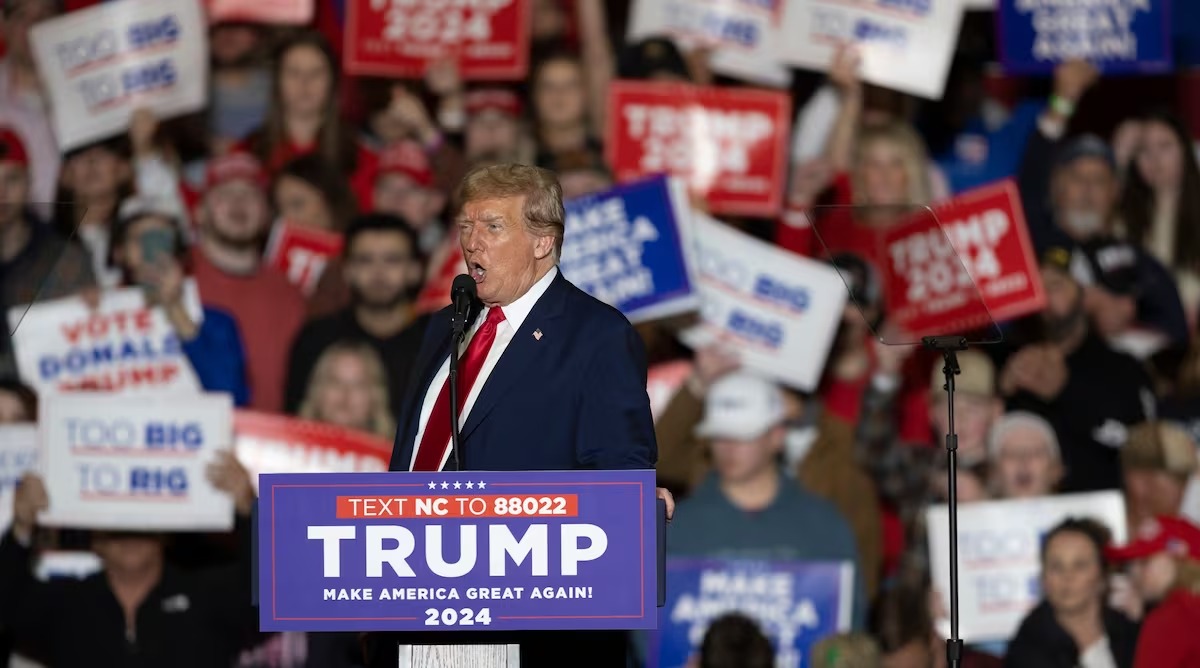As the Republican presidential nomination race enters Super Tuesday, all eyes are on former President Donald Trump, who has maintained a stronghold on the competition thus far.
With 15 states set to vote and a substantial portion of delegates up for grabs, this pivotal moment in the primary calendar will test the extent of Republican support for Trump’s candidacy.
Having secured victory in nearly every contest to date, Trump is widely expected to dominate Super Tuesday, further solidifying his frontrunner status.
However, despite his commanding lead, a notable percentage of voters in some states have opted for alternative candidates, signaling lingering reservations among segments of the GOP electorate.

This phenomenon underscores the complexity of Trump’s position within the party and the challenges he may face in uniting Republicans behind his candidacy for the general election.
Nikki Haley, Trump’s last remaining challenger in the GOP field, has seized upon this dynamic to advocate for the continuation of her campaign, emphasizing the importance of offering voters a choice and addressing any lingering concerns within the party.
As Trump marches closer to the nomination, the outcome of Super Tuesday will provide valuable insights into the state of the Republican Party and its readiness to rally behind its standard-bearer for the upcoming presidential race.
Despite his overwhelming dominance thus far, Trump’s ability to secure broad-based support within the GOP remains a key factor in shaping the party’s prospects in the general election.


